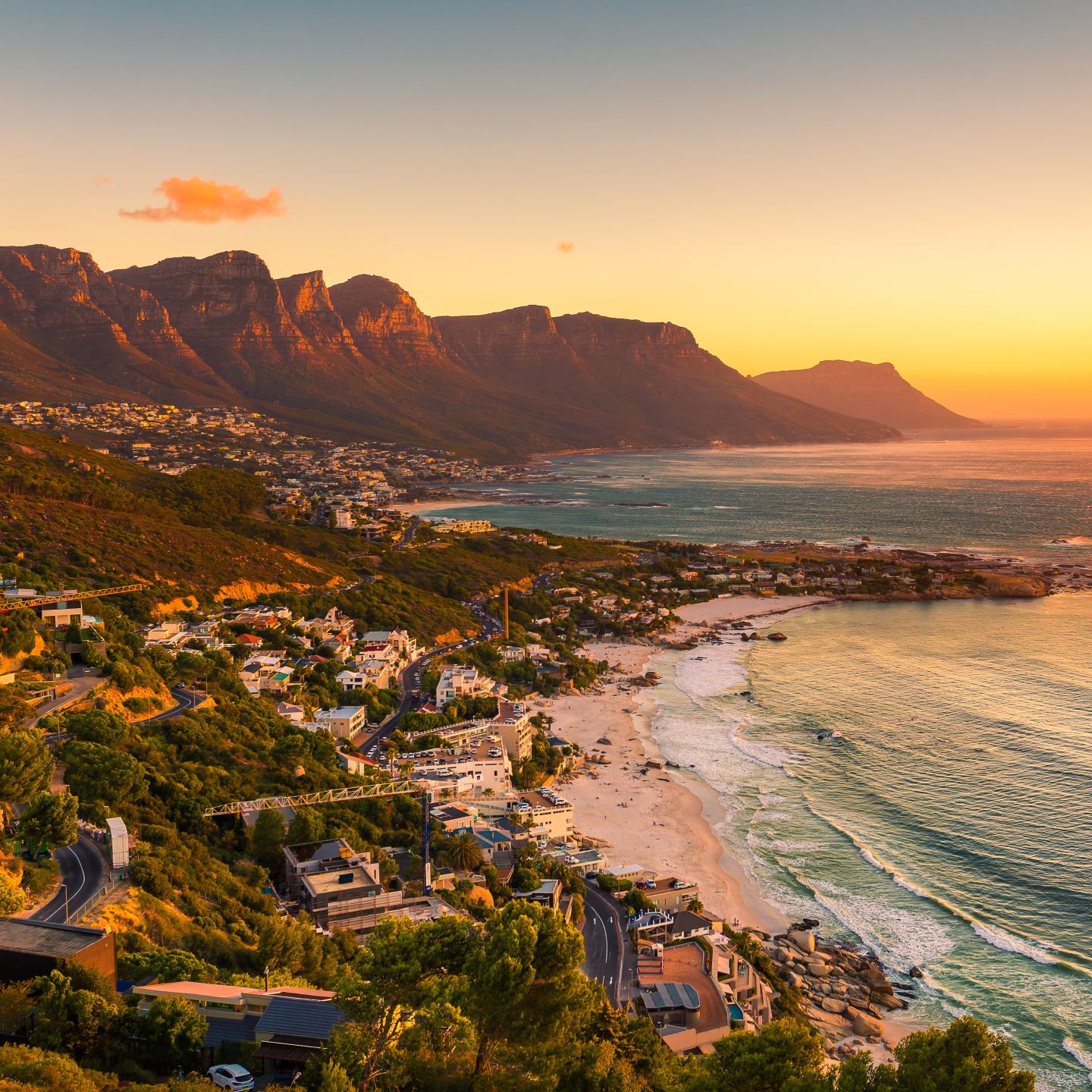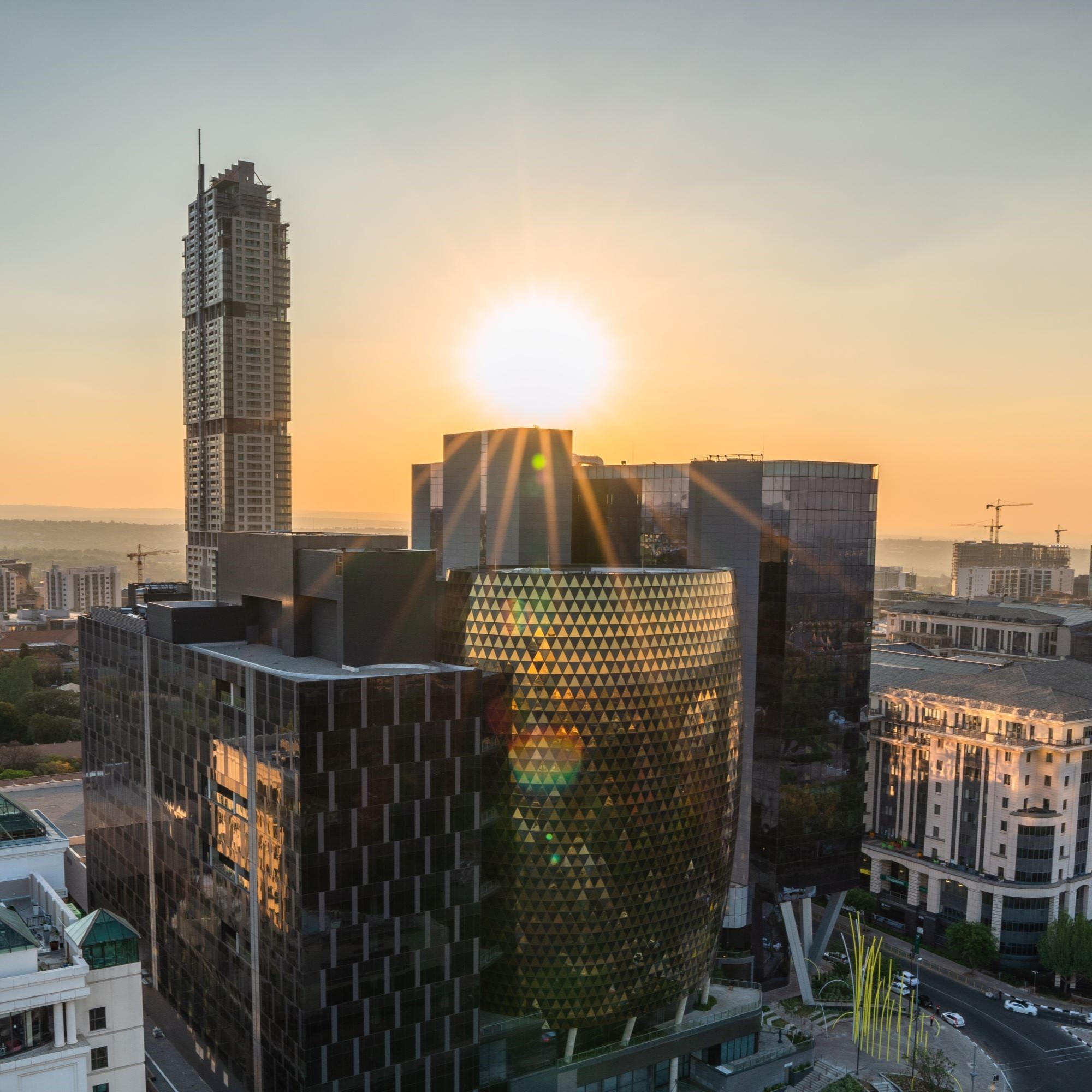Africa
Africa Accelerates Plans for a Single Digital Market By 2030
Africa is steadily advancing toward a Single Digital Market by 2030, an ambitious vision championed by the Smart Africa Alliance. This year’s seventh Transform Africa Summit (TAS), held in Conakry, brought together heads of state, policymakers, and technology leaders for three days of discussions on the continent’s digital future.
The summit, organised by Smart Africa in partnership with the Government of Guinea, marked the first time Francophone West Africa hosted Africa’s flagship technology gathering.
Under the theme “AI for Africa: Innovate Locally, Impact Globally,” the summit showcased Africa’s shared commitment to leveraging technology for sovereignty, economic growth, and inclusive development. Smart Africa, a bloc of 42 member states, highlighted flagship initiatives such as SANIA, SADX (Smart Africa Data Exchange Platform), and Digital ID.
The summit also unveiled new strategic partnerships to accelerate the continent’s digital integration, spanning digital skills, payments, data exchange, and internet governance.
Together, these initiatives advance Smart Africa’s vision of an interconnected, competitive, and sovereign Africa, capable of securing a prominent role in the global digital economy.
Founded in 2013, the Smart Africa Alliance has grown from 37 members three years ago to 42 today, evolving from a consultative platform into a fully operational institution executing large-scale digital projects across the continent.
Source: Business Insider Africa
Algeria
Algeria’s Sonatrach and Saudi Medad Sign USD 5.4 Billion Contract
Algeria’s Sonatrach and the Saudi company Medad Energy North Africa signed a hydrocarbons contract on Monday in the form of production sharing, related to the exploration and exploitation of hydrocarbons in the contractual area of Illizi South, located in the Illizi Basin, approximately 100 kilometers south of In Amenas.
The contract was signed by the CEO of the Sonatrach Group, Rachid Hachichi, and the CEO of Medad Energy North Africa, Cheikh Abdulelah Bin Mohammed Bin Abdullah Al-Aiban. The signing ceremony was attended by the Algerian Minister of State, Minister of Hydrocarbons and Mines, Mohamed Arkab, the Ambassador of the Kingdom of Saudi Arabia to Algeria, Abdullah bin Nasser Al-Busairi, as well as the Chairman of the Managing Committee of the National Agency for the Valorization of Hydrocarbon Resources, and the President of the Hydrocarbons Regulatory Authority.
This contract, signed under the provisions of Law No. 199 on hydrocarbons, extends for 30 years, with a 10-year extension option. It includes a seven-year exploration phase, Sonatrach said in a press release.
The total planned investments for the exploration and exploitation of this block will be 100% financed by the partner, Medad Energy North Africa, amounting to approximately USD 5.4 billion, including USD 288 million allocated to exploration investments, the source said.
The work program associated with this contract will be carried out in strict compliance with environmental protection requirements and in accordance with the regulations in force in Algeria. The program also includes the use of the latest technological and digital solutions.
Moreover, priority will be given to assigning local content and subcontracting to national operators during the implementation of this contract.
Source: AL24 News
Côte d’Ivoire
Côte d’Ivoire Climbs into Africa’s Top 10 Investment Hubs on Industrial Reforms
Côte d’Ivoire has recorded the most significant improvement in Africa’s investment attractiveness ranking for 2025, thanks to its government’s ambitious industrial reforms and drive to expand value addition in key commodities such as cocoa and cashew.
According to the latest ‘Where to Invest in Africa’ report by Rand Merchant Bank (RMB), the country climbed eight places — from 16th to eighth position — among 31 African economies assessed.
This year’s edition places Seychelles, Mauritius, Egypt, South Africa, and Morocco as Africa’s top five investment destinations, followed by Ghana, Algeria, Côte d’Ivoire, Tanzania, and Kenya.
“Côte d’Ivoire stands out as the highest climber in the rankings, halving its distance from the top with a jump from 16th to eighth place,” the report said. “Several tailwinds are likely contributors to the country’s surge up the rankings, from strong growth momentum to rising industrial capacity.”
Among the country’s major achievements is its near-universal access to electricity, now covering 94% of its population. The success stems from the government’s Electricity for All programme, supported by the World Bank.
While agricultural productivity has stagnated—cocoa output fell by 25% in 2024 compared to 2023—the government’s focus has shifted toward domestic processing of raw materials. Côte d’Ivoire remains the world’s largest cocoa producer, but it is now investing heavily in downstream processing to capture more value locally.
Source: Finance in Africa
Egypt
Egypt Lands Major Gulf Investment as Qatari Diar Unveils USD 29.7 Billion Luxury Project
Qatari Diar, the real estate arm of Qatar’s sovereign wealth fund, will invest USD 29.7 billion in a landmark coastal development on Egypt’s Mediterranean shore. The landmark coastal development on Egypt’s Mediterranean shore will be one of the largest foreign real estate ventures in the country’s history.
The agreement, signed with Egypt’s New Urban Communities Authority, signals renewed Gulf confidence in Cairo’s economy at a time when the government is urgently seeking external financing to address ballooning debt and a deep fiscal shortfall, according to a Reuters exclusive report.
It also represents Qatar’s first major investment in Egypt since it pledged USD 7.5 billion earlier this year.
The project will transform Alam Al-Roum, an untouched stretch of coastline roughly 480 kilometres northeast of Cairo, into an upscale, year-round destination designed to attract international visitors.
The plans include luxury housing, golf courses, marinas, educational institutions, and public infrastructure, turning the remote site into a self-contained urban hub.
Once completed, the coastal city is projected to generate at least USD 1.8 billion in annual revenue. NUCA will receive 15 per cent of that income after Qatari Diar has recovered its total investment.
Source: Business Insider Africa
Kenya
Kenya Discovers Largest Gold Deposit in Decades, worth an estimated USD 5.29 Billion
Kenya has taken a significant step toward boosting its mining sector after British firm Shanta Gold Limited confirmed a new USD 5.29 billion gold discovery at its Isulu-Bushiangala underground project in Kakamega County. Kenya is on the verge of a significant economic breakthrough following the discovery of its largest gold deposits in decades, valued at an estimated KES 683 billion (approx. USD 5.29 billion) in Kakamega County.
According to The Star Kenya, British miner Shanta Gold Limited confirmed 1.27 million ounces of gold at its Isulu-Bushiangala underground project, marking a significant milestone for the country’s mining sector.
The project, spearheaded by Shanta Gold Kenya, a subsidiary of the London-listed firm, will use advanced Long Hole Open Stoping technology to extract ore while minimising surface disruption.
“The project is aimed at obtaining the required authorisation to mine the Isulu-Bushiangala gold resources for economic purposes,” the company said in a statement.
Key infrastructure will include a 1,500-tonne-per-day processing plant, a 12-megawatt power station, and a tailings storage facility. The mine’s construction is projected to cost between KES 22 billion (approx. USD 170 million) and KES 27 billion (approx. USD 208.7 million), with an operational life of at least eight years.
Source: Business Insider Africa
Morocco
Morocco Pledges USD 7.8 Billion to Revamp Public Transport by 2029
Morocco has committed a staggering USD 7.8 billion to develop a clean, multimodal public transport system by 2029, according to Abdellatif Maâzouz, president of the Casablanca-Settat regional council.
Announced on the sidelines of COP30, the investment is split roughly: USD 1.1 billion for the purchase of 3,750 next-generation buses and USD 6.7 billion for core infrastructure, including trams, commuter rail (RER), and regional rail lines.
Maâzouz emphasised that regions now play a central role in Morocco’s ecological transition, under the country’s advanced regionalisation framework.
He noted that the Casablanca-Settat region alone has committed almost USD 2.5 billion, accounting for roughly 40 per cent of its updated Regional Development Plan, to both urban and rural mobility infrastructure and equipment.
The region is rolling out an integrated transport model built around a “non-polluting train-tramway duo”, which will be reinforced by a modernised bus fleet and a new digital multimodal platform.
This bold investment aligns with Morocco’s National Charter for Sustainable Mobility 2035 and its National Low-Carbon Strategy 2030, frameworks designed to build inclusive, competitive, and resilient communities where clean mobility is a key lever for both quality of life and economic attractiveness.
Source: Business Insider Africa
Nigeria
Energy Consortium Secures USD 50 Billion to Build Africa’s Second-Largest Refinery in Nigeria
An international energy consortium has secured a USD 50 billion investment to develop what is set to become Africa’s second-largest oil refinery in Ondo State, Nigeria, significantly strengthening the continent’s refining capacity.
Nigeria is set to consolidate its dominance in Africa’s oil refining landscape, as an international energy consortium secured over USD 50 billion to construct a 500,000-barrel-per-day refinery and a 1,471-hectare free trade zone in Ondo State.
Before this project, Algeria’s Skikda Refinery, with a capacity of about 356,500 barrels per day, held the title of Africa’s second-largest refinery. Once the Ondo refinery becomes operational, it will dethrone Skikda to become the continent’s largest, making Nigeria home to both the largest and the second-largest refining facilities on the continent.
The mega project, spearheaded by Backbone Infrastructure Nigeria Limited in partnership with NEFEX Holdings Limited of Canada, represents one of the largest private-sector energy investments in West Africa and is poised to become Africa’s second-largest refinery after the 650,000-barrel-per-day Dangote Refinery in Lagos.
Source: Business Insider Africa
Uganda
Uganda is on Track for the USD 4 Billion Refinery Project
Seven months after a ground-breaking deal between Uganda and United Arab Emirates investor Alpha MBM Investments to construct a greenfield 60,000 barrels-per-day refinery, executives overseeing the project’s implementation say they have finalised initial contracts to kick-start the development of the USD 4 billion facility, with a target for the final investment decision set for July 2026.
Refinery configuration studies have been completed, and technology licensor UOP Honeywell has been on board since June this year as the parties prepare to launch front-end engineering design and environmental and social impact assessment studies by November 15.
Officials reveal that the incorporation of a special purpose vehicle, Kabaale Refinery Company,6 is complete, with private investor Alpha MBM controlling a 60 percent stake and 40 percent held by the Uganda National Oil Company, maintaining a similar shareholding structure to that of the refinery itself.
When completed, the refinery will contribute USD 3.4 billion to Uganda’s GDP per annum, facilitate national capital formation through annual investments of UGX 8.3 billion (approx. USD 2.36 million), and create about 32,000 direct and indirect jobs.
The refinery will also create a balance of payments impact of USD 591 million per annum and a general fiscal impact of USD 804 million per annum.
Source: Business Insider Africa
______________________
Reports
Where to Invest in Africa | Rand Merchant Bank
Africa is navigating significant turbulence and transformations on multiple fronts, both geopolitically and economically. The RMB Where to Invest in Africa 2025/26 Report provides investors with a comprehensive analysis of 31 countries, uncovering the underlying drivers of each country’s performance and informing their rankings.
The report further provides insights into how policy can be leveraged to enhance countries’ future performances and their relative investment attractiveness.
Click here to download and read the report.
Implementing the AfCFTA Agreement and Impacts for Africa’s Regional Value Chains | United Nations Economic Commission for Africa
This study examines how the implementation of the African Continental Free Trade Area (AfCFTA) Agreement can enhance the development of regional value chains (RVCs) across Africa. Using the MIRAGE-VA computable general equilibrium model, the analysis simulates the potential impacts of AfCFTA implementation across sectors to identify those with the greatest potential for value addition and RVC formation.
The results indicate that processed food, tourism, health, pharmaceuticals, automotive, wood and paper, metals, and other manufactured products offer the strongest prospects for RVC development. At the same time, textiles, apparel, and leather also show considerable potential within the AfCFTA framework.
Click here to download and read the report.
State of AI in Africa | Centre for Intellectual Property and Information Technology Law at Strathmore University
Artificial Intelligence (AI) is fast becoming a defining feature of Africa’s digital transformation. The State of AI in Africa Report 2025 offers a critical reflection on how AI ecosystems across the continent have evolved since 2023, highlighting advances in infrastructure, regulatory frameworks, capacity building, and sectoral innovation, while also surfacing enduring structural disparities.
This report by the Centre for Intellectual Property and Information Technology Law (CIPIT) at Strathmore University provides a detailed analysis of the progress, challenges, and emerging trends in artificial intelligence (AI) across Africa. Building on the findings of the 2023 State of AI in Africa Report and following discussions from the 2nd Conference on the State of AI in Africa, this edition offers updated insights into Africa’s evolving AI landscape.
Click here to download and read the report.
Beyond Compliance: Trade as a Channel for the Adoption of Industrial Wastewater Treatment in the Global South | SMEP Programme
Water emerges as a pivotal element within the context of the triple planetary crisis of climate change, pollution, and biodiversity. As a fundamental resource for all life forms, water plays a multifaceted role in our ecosystems, as a critical input to various sectors in our economies and to human well-being. Human activities, including industrial activity, continue to apply significant pressure on the environment, making water resources more vulnerable to pollution and degradation.
This brief explores the role of trade in facilitating access to affordable industrial wastewater treatment (WWT) solutions in developing countries. It does so through a combination of global data analysis and SMEP case study reviews outlining its potential for sustainability transitions and the business case for private-sector investment.
Click here to download and read the report.



